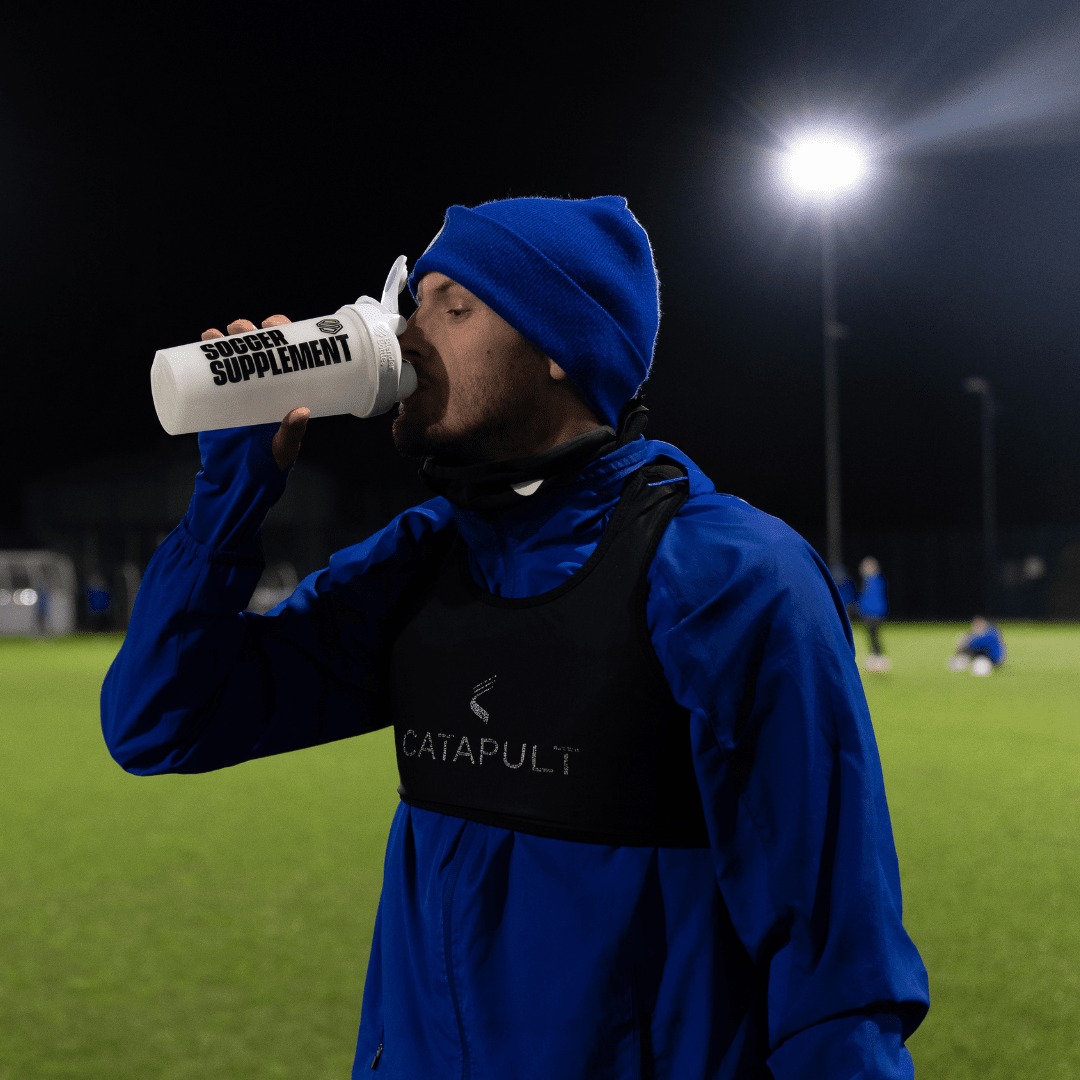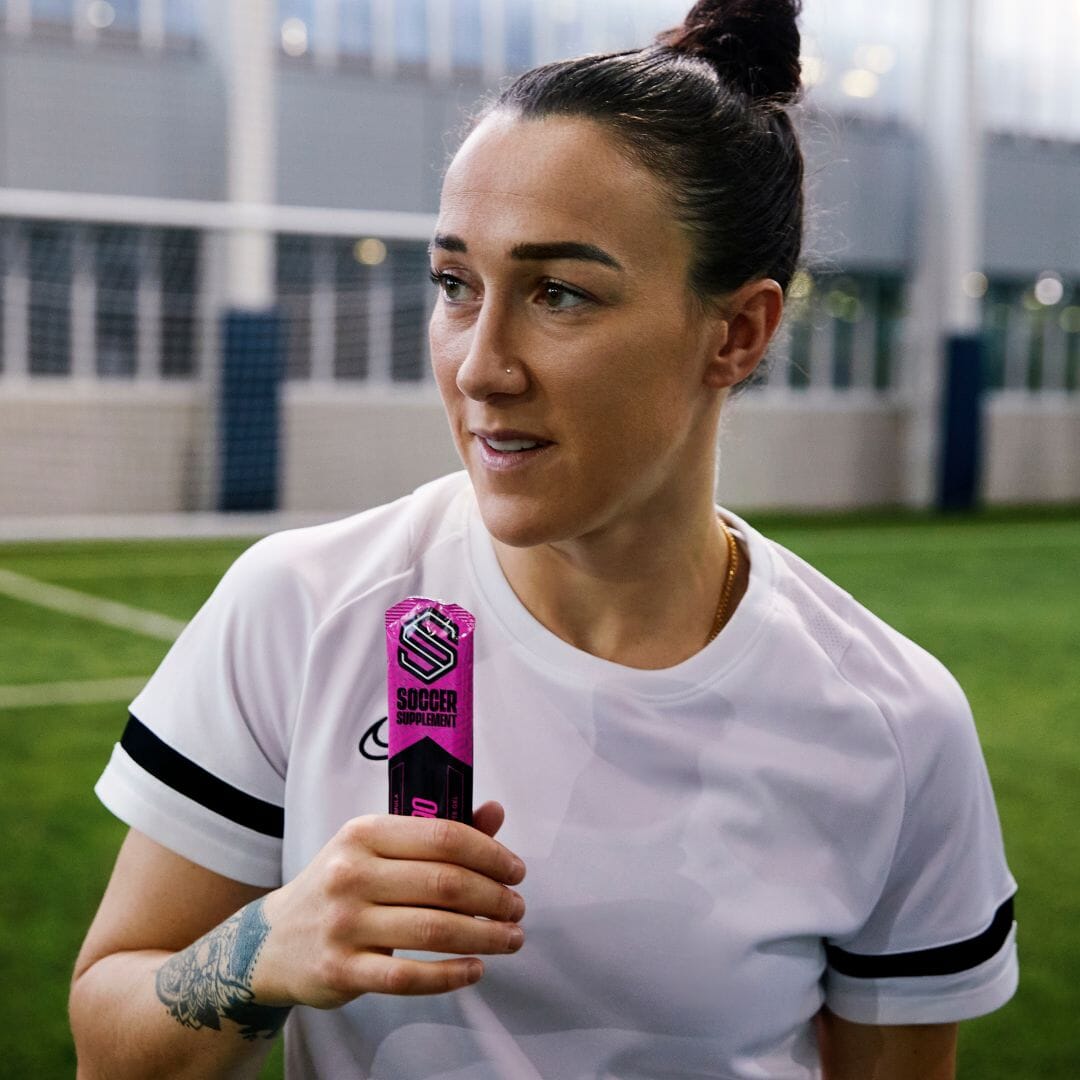It’s no secret that time lost in the gym or on the training ground due to illness will compromise performance on the pitch.
As you’ll see from the image, there are many factors that increase susceptibility to upper respiratory illness (e.g. a common cold).1 Of these factors, some are practically unavoidable like being in crowds and breathing cold, dry air. Others, such as getting enough quality sleep each night are much more controllable. As such, below I’ve outlined five of the more pragmatic pieces of advice to minimise your chances of getting ill during hard training or matches.

1. Carbohydrate Intake: As carbohydrate is the predominant fuel source for the immune system, an insufficient amount of carbohydrate in the diet can lead to immunosuppression (immune system suppression). Therefore, consuming an adequate amount of carbohydrate to meet your energy and training requirements will help to support your immune system. Additionally, consuming carbohydrate as soon as possible after training, and during sessions over 90 minutes, will limit elevations in stress hormones (such as cortisol) and the extent of exercise-induced immune suppression.
2. Food Hygiene: One aspect that is often neglected, but is vital in minimising illness and time out of training, is good hygiene standards. Using hand sanitisers, disinfectant in your drinks bottle and washing your hands before mealtime and after training sessions can all help minimise your susceptibility to illness.
3. Avoid Nutrient Deficiencies: Eat a wide range of fruit and vegetables (over 5 per day) to obtain all the essential vitamins and minerals. Fruit and vegetables also contain high levels of anti-oxidants that benefit the immune system, and reduce the duration and severity of colds and infections. Be cautious if you use vitamin supplements as mega-dosing can impair some aspects of the immune system and decrease adaptations to training. Ensure you have a sufficient amount of protein in your diet, as proteins are used to produce and replicate many different immune cells.2
4. Hydration: Maintaining your hydration status and drinking water during training sessions will help to maintain your saliva flow rate. Saliva contains many anti-bacterial properties, and is one of our first lines of defence against pathogens (germs).3
5. Weight Loss: During weight loss, if the calorie deficit is too large this can lead to immunosuppression and a decrease in the activity of many immune cells, leaving you susceptible to illness. When in a negative energy balance, ensure you adhere to point 3 and avoid nutrient deficiencies to maintain immune function. Finally, if weight loss is your goal, choose a diet that is realistic and you can adhere to in the long term.
Joseph Agu MSc
Science Director | Soccer Supplement ®
References
1. Gleeson, M. Immunological aspects of sport nutrition. Immunol. Cell Biol. Adv. online Publ. 94, 117–123 (2015).
2. Gleeson, M., Nieman, D. C. & Pedersen, B. K. Exercise, nutrition and immune function. J. Sports Sci. 22, 115–125 (2004).
3. Bishop, N. C., Blannin, A. K., Armstrong, E., Rickman, M. & Gleeson, M. Carbohydrate and fluid intake affect the saliva flow rate and IgA response to cycling. Med. Sci. Sports Exerc. 32, 2046–51 (2000).







